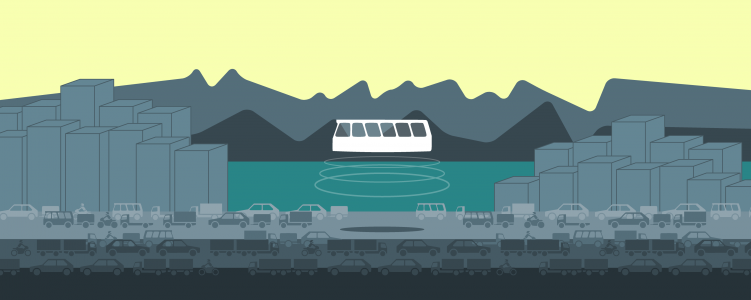
I hate my commute. It is easily the worst part of my day, as it is for many Americans. In fact, commuting is associated with the least number of positive emotions of any daily activity.
We hate it, but we have no choice: we have to go to work.
The next time you’re stuck in traffic on your way to or from work, look around. See how many cars joining you on the clogged highway contain only one person, and you’ll get a first-hand look into the scale of this problem. In aggregate, over three quarters of Americans drive to work alone. The majority of US metro areas face this challenge, especially since other transit modes are rarely viable options. This is due in part to the automobile-oriented nature of most modern urban and suburban areas.
There are plenty of private companies working to solve this problem. Most of their solutions are focused on providing a new mode of service that they themselves will own and operate, with thesis statements based around disrupting mass transit or replacing it entirely. These approaches attack the problem by building new infrastructure rather than innovating within and improving the existing mass transit system. Citizens overwhelmingly support spending taxpayer dollars on new and improved public transportation initiatives, and mandates such as Title VI exist to ensure transit serves all citizens equally. The financial benefit of improving a city’s public transit system can reach as high as $1.8 billion. Mass transit isn’t going anywhere.
The solution is not more infrastructure: it’s better utilization of the existing infrastructure. By reframing potential solutions from “let’s build something new because we’re technologists and that’s what we do” to “let’s leverage the resources we already have because we’re problem solvers and that’s what we do,” we’re able to deliver immediate, impactful value without the unnecessary creation of “parallel amenities.”
#HackMyCommute is our solution. It represents the output of substantial amounts of big data analysis and customer development, both with transit agencies and transit riders. By focusing on the commute, we’re able to improve one of the most vital and least desirable trips of everyone’s day. Regardless of who you are, where you live, or what you do for a living, everyone has to go to work.
Let’s make getting there better.
Let’s hack our commutes.